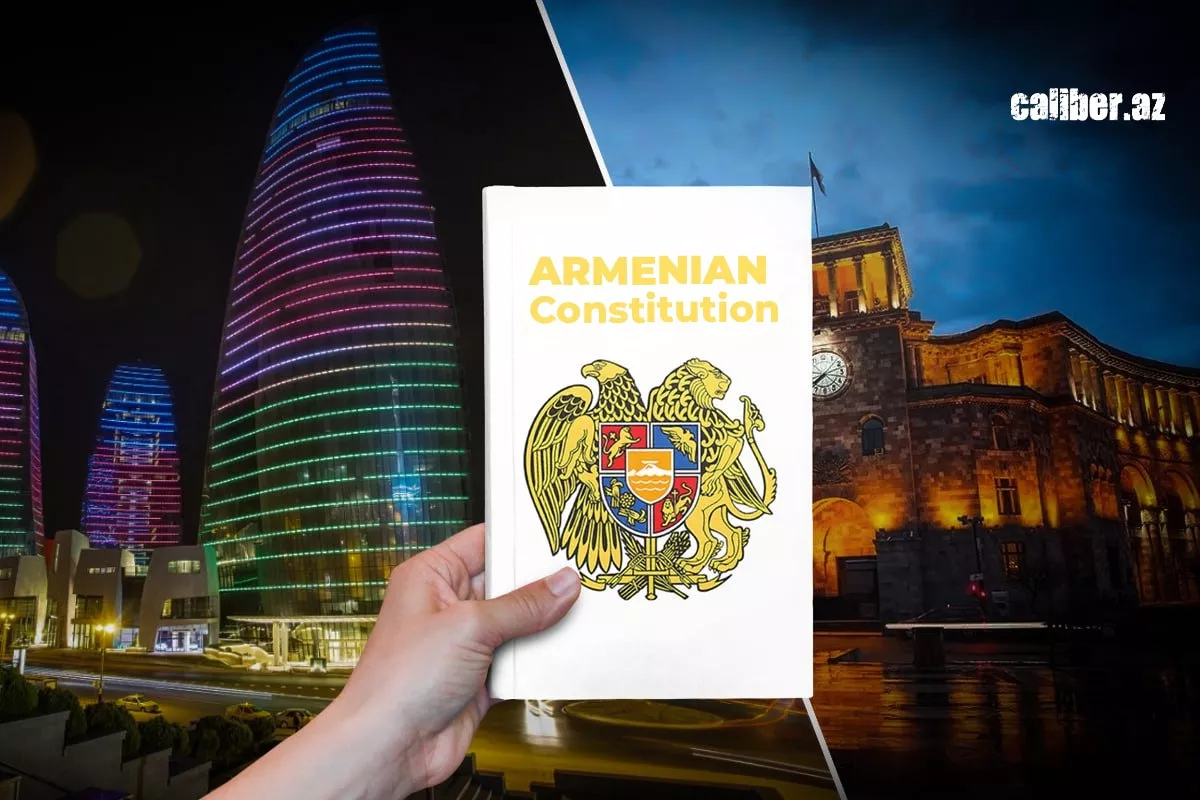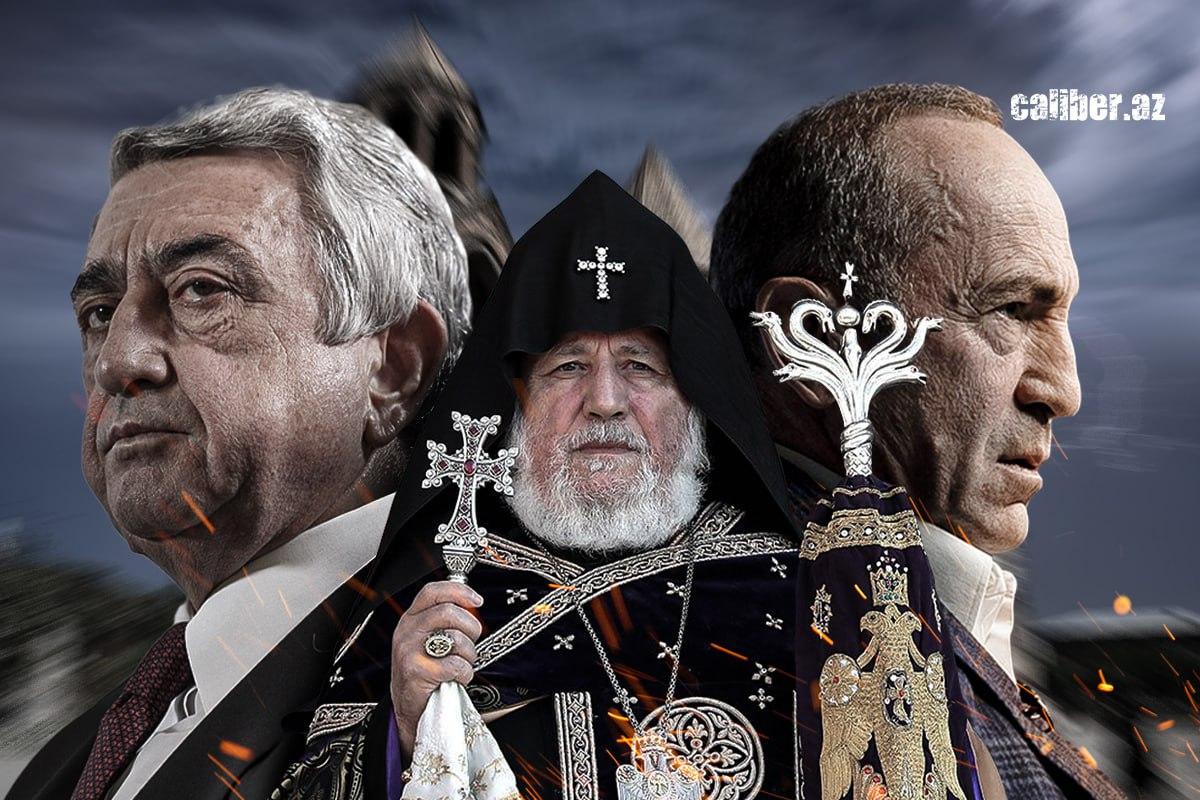“Armenian people will finally accept Karabakh as part of Azerbaijan” Natalie Aleksanyan on Caliber.Az
In an exclusive interview with Caliber.Az, Armenian blogger Natalie Aleksanyan shares her insights on the prospects for peace between Armenia and Azerbaijan, evaluating Prime Minister Pashinyan’s policies, domestic challenges, and the role of external pressures in the post-conflict settlement.
Q: Natalie, how do you assess Armenian Prime Minister Nikol Pashinyan’s policy on normalising relations with Azerbaijan? In your view, is the Armenian leadership ready for a long-term peace with its neighbour?
A: I see it as a realistic but risky policy. Nikol Pashinyan is attempting to initiate a structural peace process through economic and diplomatic channels, which is a necessary step. However, the process remains very fragile due to domestic political resistance and external pressures. Success is essential but not automatic: it depends on deep reforms and active societal engagement. This is a historic opportunity for our people, provided by Prime Minister Nikol Pashinyan and President Ilham Aliyev. We must seize it for the sake of our children’s future.
Q: Then why does Pashinyan’s team occasionally make statements suggesting that Armenia will not accept Baku’s demand to amend the constitution for a peace treaty? What is the purpose of such messages?
A: These statements serve two purposes. First, internally: to show the people that no momentous change will be made “behind closed doors.” Second, externally: to demonstrate that Armenia is sovereign and does not yield to external conditions. Given the daily rhetoric from the Armenian opposition claiming that Nikol Pashinyan is supposedly bowing to Ilham Aliyev, such statements are natural—any leader must first demonstrate strength to their own people. At the same time, I already have a drafted version of the new constitution, and I believe it will soon be implemented.

Q: That’s interesting. Can you share whether the document includes a clause about renouncing territorial claims against Azerbaijan?
A: I haven’t fully reviewed the text yet. But I will let you know once I have studied it completely.
Q: Agreed. And personally, do you support amendments that would remove any territorial claims against Azerbaijan?
A: I am categorically against any state having territorial claims against its neighbours. I can only imagine how the Armenian opposition would react if the Azerbaijani Constitution had such a clause—I can’t help but smile at the thought. I am almost certain that this will be corrected, and that the Armenian people will finally understand that Karabakh is an inseparable part of Azerbaijan.
Q: That’s encouraging. From your observations, is the Armenian leader’s approval rating high in the country?
A: Nikol Pashinyan’s rating is gradually rising, and this is evident across all segments of Armenian society. In fact, not long ago, the opposition paid heavily to conduct a survey organised by a well-known American organisation, but the results were not released for several days. Later, the data came into my hands, and I published it on social media. Only a few hours after that, the survey was officially released. In my view, the majority of the people see Pashinyan as the only guarantor of peace and state stability.
Q: In one of your interviews, you mentioned receiving threats from supporters of the former Karabakh leadership, Robert Kocharyan and Serzh Sargsyan, because of your stance on the Armenian–Azerbaijani settlement. How do you respond to these attacks?
A: I receive threats around the clock, recently even from Samvel Babayan. Every scenario has been tried against me: first threats, then bribes, and then more threats. Yesterday, I wrote an open letter to Samvel Karapetyan’s wife, and this morning I received serious threats. But I smile. No threats, no amount of money in this world can change my love for the human being created by God. I am a determined woman, and if I have a goal, I achieve it. Our peoples should no longer be crying. Threats only reveal their weakness and impotence.
Q: Do you have allies in the media space who are also supportive of the Armenian–Azerbaijani settlement?
A: I believe that, deep down, every person longs for peace. Of course, you’ve probably noticed how many Armenian followers I have, and that speaks to their support. But people still struggle to overcome their fears and express themselves as openly as I do, especially because of the fear of the Karabakh clan. We still have a lot of work ahead, and the most difficult phase will begin once the peace agreement is formally signed.
Q: A couple of years ago, in an interview, you said that fear of war prevented people from thinking about reconciliation. Has anything changed in this regard? Do the Armenian people now feel confident about the future?
A: The situation is different now. The opposition’s thesis that war is inevitable is gradually collapsing because people are witnessing concrete steps in practice. The handshake between Nikol Pashinyan and Ilham Aliyev in the United States inspired trust among certain segments of society. However, the syndrome of fear still exists. Honestly, it’s very difficult for me to respond to everyone and explain the seriousness of the situation—the wound from past losses and pain is still fresh, and the people need time.
Q: Since the beginning of the post-conflict period in the region, has the level of revanchist sentiment in Armenia decreased or increased?
A: Initially, it was rising daily, but recent arrests have reduced the activity of the Karabakh clan. At the moment, they are trying to evade responsibility. This reflects not only a syndrome of fear but also their gradual understanding that they are losing a lot and are trying to preserve what they have looted. The time will come when they, too, will not be able to escape accountability. In reality, they care little for the people’s interests—they act only in favour of their own pockets. And the people have long understood this.
Q: In the current tense confrontation between the authorities and the Church, whose position does the Armenian public support?
A: The people have long realised that the Armenian Apostolic Church has become a direct assembly of mafia-like structures. At first, people did not understand what was happening, but gradually the information being revealed proved accurate. Recently, I obtained a dossier confirming that in 2021, Ktrich Nersisyan took control of the Mother See of Holy Echmiadzin and changed its name. The document was published, after which the wider public began actively discussing the issue. So, the majority of the people now demand that Nersisyan step down from the position of Supreme Patriarch.

Q: At the beginning of our conversation, you mentioned that the Armenian–Azerbaijani settlement is under external pressure. Did you mean the Armenian lobby or global powers?
A: First, the Armenian lobby in the U.S. and other countries; second, pressure from Russia, because the current process is not in its interest. For example, if Armenia begins receiving gas from Azerbaijan, it will make gas prices more affordable. I also hope that amid these changes, the 102nd Russian military base will leave the territory of the Republic of Armenia.
Q: The Russian military base could leave Gyumri only if Armenia completely severs all ties with Russia, which currently seems unlikely.
A: Let’s look at the facts: we have an agreement regarding the 102nd Russian military base. If a peace agreement is signed between Baku and Yerevan, they will no longer be able to continue their activities there.
Q: How Armenian–Russian relations will evolve remains to be seen. I want to ask the final question: do you think a peace treaty between Baku and Yerevan is possible in the foreseeable future?
A: Considering recent developments, everything is moving toward peace and reforms. Of course, nothing can be taken for granted, given the external pressures and circumstances. I have always been honest in my observations, and for the sake of fairness, I must say: peace is moving forward, and it is inevitable.








